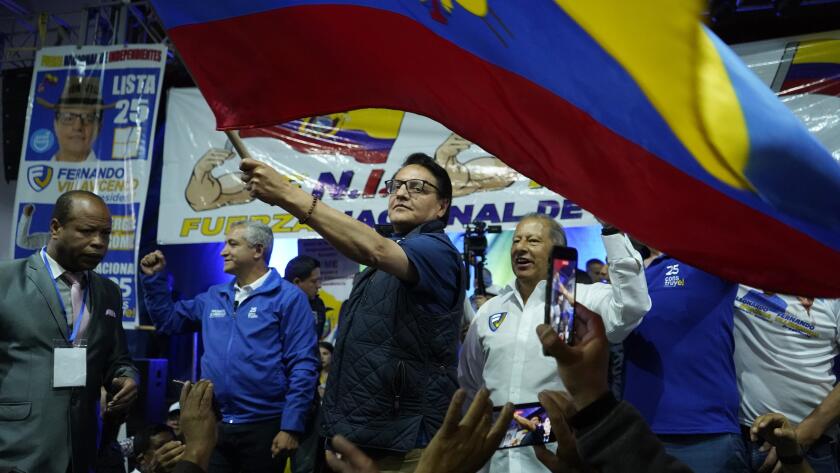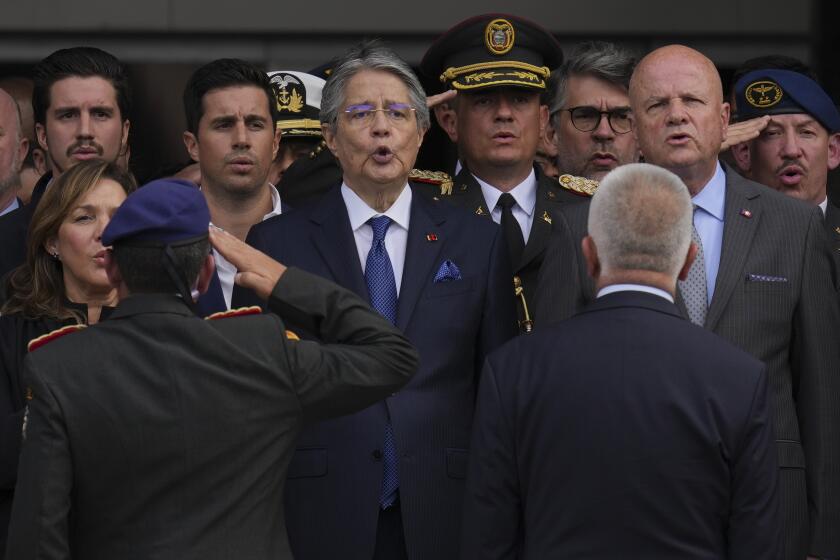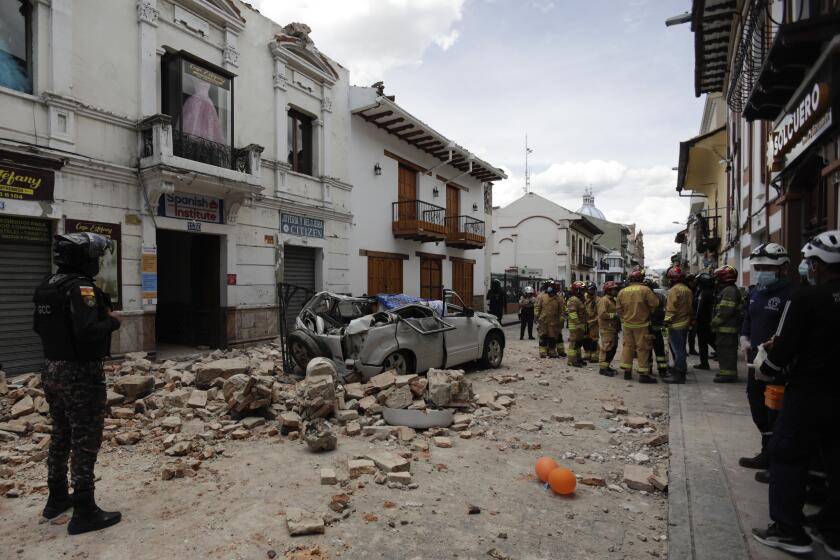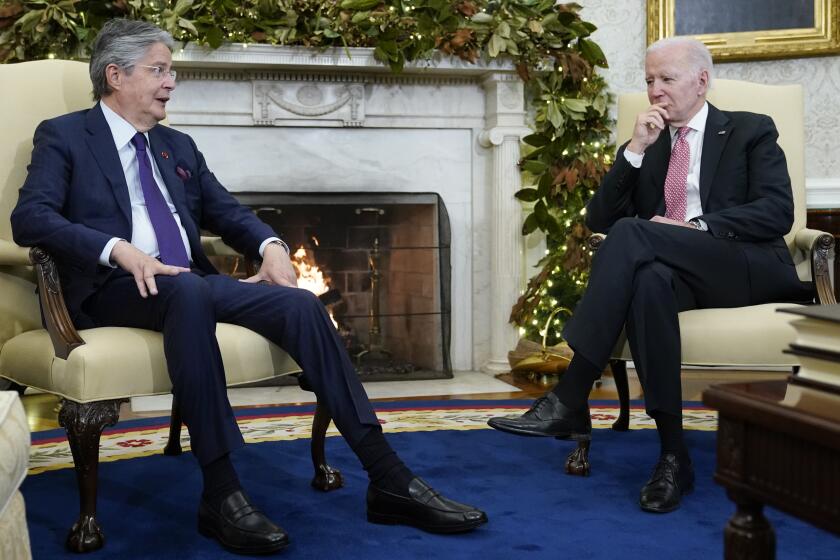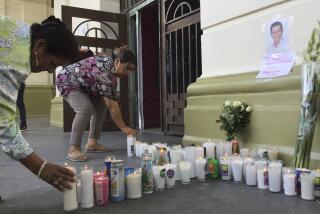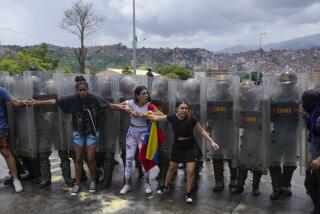Anti-corruption presidential candidate in Ecuador is assassinated at campaign event
Fernando Villavicencio was killed by a gunman at a political rally in Quito, the capital of Ecuador, where drug trafficking and violence have surged.
QUITO, Ecuador — An Ecuadorean presidential candidate known for speaking up against corruption was shot and killed Wednesday at a political rally in the capital amid a wave of startling violence in the South American country
President Guillermo Lasso confirmed the assassination of Fernando Villavicencio and suggested organized crime was behind his slaying. Villavicencio was one of eight candidates in the Aug. 20 presidential vote, though not the front-runner. The politician, 59, was the candidate for the Build Ecuador Movement.
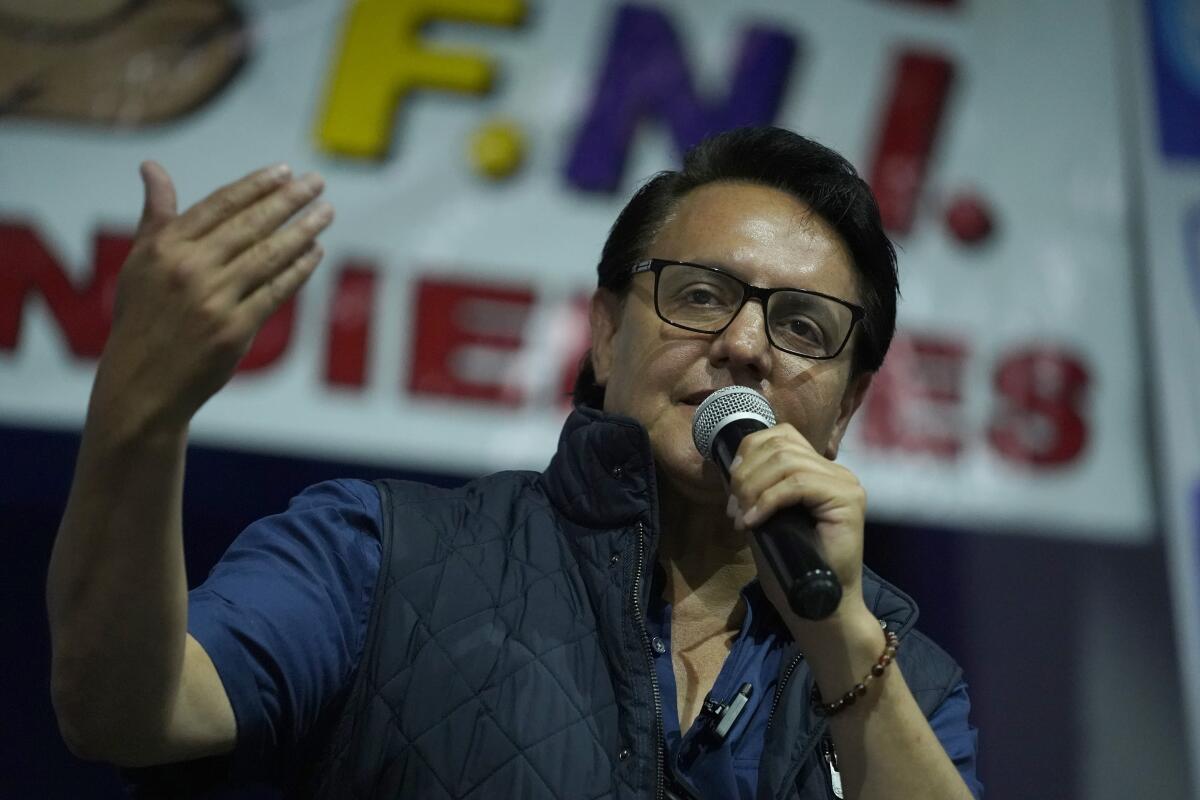
“I assure you that this crime will not go unpunished,” Lasso said in a statement. “Organized crime has gone too far, but they will feel the full weight of the law.”
The attorney general’s office said that one suspect died in custody from wounds sustained in a firefight after the killing, and police detained six suspects following raids in Quito, the capital.
In his final speech before he was killed, Villavicencio promised a roaring crowd that he would root out corruption and lock up the country’s “thieves.”
Before the shooting, Villavicencio said he had received multiple death threats, including from affiliates of Mexico’s Sinaloa cartel, one of a slew of international organized crime groups that now operate in Ecuador. He said his campaign represented a threat to such groups.
Ecuadorean President Guillermo Lasso has put an end to impeachment proceedings against him by dissolving the opposition-led National Assembly.
“Here I am showing my face. I’m not scared of them,” Villavicencio said in a statement, naming detained crime boss José Adolfo Macías by his alias, “Fito.”
Violence in Ecuador has surged in the last year as drug traffickers have flocked to the nation, resulting in an uptick in drug trafficking, violent killings and child recruitment by gangs.
Just last month, the mayor of the port city of Manta was shot and killed. On July 26, Lasso declared a state of emergency covering two provinces and the country’s prison system in an effort to stem the violence.
Former vice president and candidate Otto Sonnenholzner said at a news conference following Villavicencio’s killing: “We are dying, drowning in a sea of tears, and we do not deserve to live like this. We demand that you do something.”
The death toll from an earthquake that rocked Ecuador and Peru over the weekend stands at 15, with many residents fearful of a major aftershock.
Videos on social media appear to show Villavicencio walking out of his campaign rally surrounded by guards. One video then shows Villavicencio entering a white truck, followed by gunfire, information that was confirmed to the Associated Press by Patricio Zuquilanda, Villavicencio’s campaign advisor.
Lasso said “the murderers” threw a grenade into the street to cover their flight, but it didn’t explode. Police later destroyed the grenade with a controlled explosion, he added.
Authorities said that at least nine others were injured in the Wednesday shooting, including officers and a congressional candidate, in what they described as a “terrorist act.”
Zuquilanda said Villavicencio had received death threats, which he had reported to authorities and resulted in one detention. Zuquilanda called on international authorities to take action against the killing, attributing it to rising violence and drug trafficking.
“The Ecuadorean people are crying and Ecuador is mortally wounded,” he said. “Politics cannot lead to the death of any member of society.”
Biden administration efforts to find a partner in Latin America ignore Ecuador’s severe problems, congressional critics say.
Villavicencio was one of the most critical voices against corruption, especially during the government of former President Rafael Correa, from 2007-17.
He was also an independent journalist who investigated corruption in previous governments, later entering politics as an anti-graft campaigner.
Villavicencio filed numerous judicial complaints against high-ranking members of the Correa government, including against the former president himself. He was sentenced to 18 months in prison for defamation over his criticisms of Correa, and fled to Indigenous territory in Ecuador, later receiving asylum in neighboring Peru.
Edison Romo, a former military intelligence colonel, said the anti-corruption complaints made Villavicencio “a threat to international criminal organizations.”
Lasso, a conservative former banker, was elected in 2021 on a business-friendly platform and clashed from the start with the left-leaning majority coalition in the National Assembly.
A snap election was called after Lasso dissolved the National Assembly by decree in May, in a move to avoid being impeached over allegations that he failed to intervene to end a flawed contract between the state-owned oil transport company and a private tanker company.
Ecuador’s constitution includes a provision that allows the president to disband the assembly during a political crisis, but then requires new elections for both the assembly and the presidency.
Diana Atamaint, the president of the National Electoral Council, said the election date, Aug. 20, was “unalterable” because of constitutional and legal mandates, as well as electoral activities that have already been approved by the council.
The killing was met with an outcry by other candidates who demanded action, with presidential front-runner Luisa González of the Citizen Revolution party saying: “When they touch one of us, they touch all of us.”
Villavicencio was married and is survived by five children.
More to Read
Sign up for Essential California
The most important California stories and recommendations in your inbox every morning.
You may occasionally receive promotional content from the Los Angeles Times.
